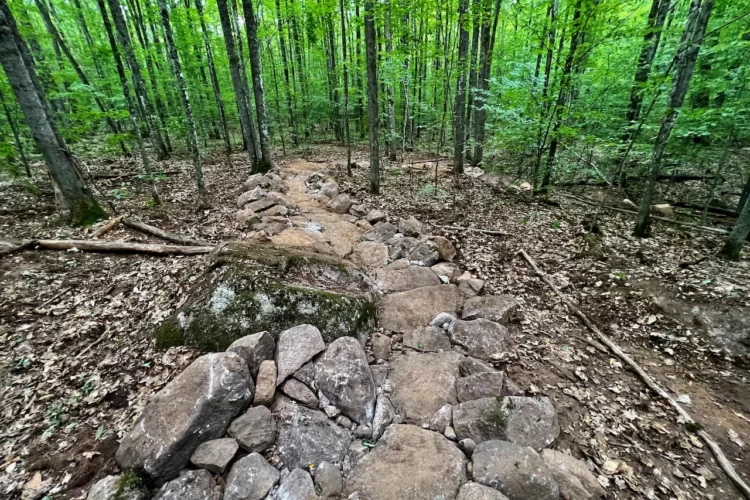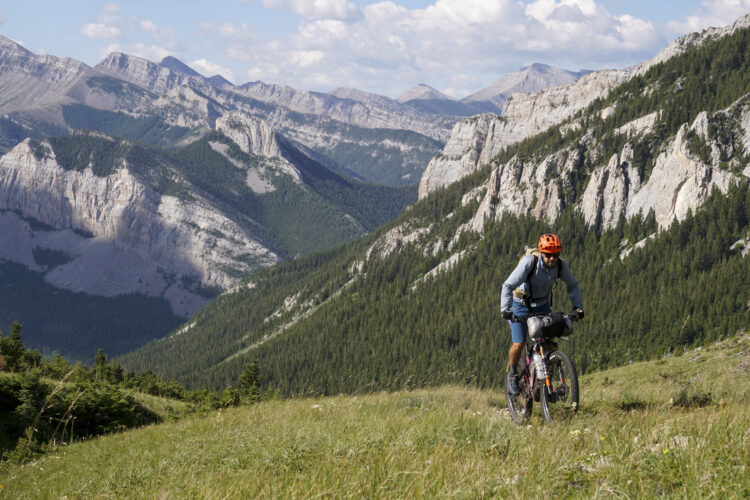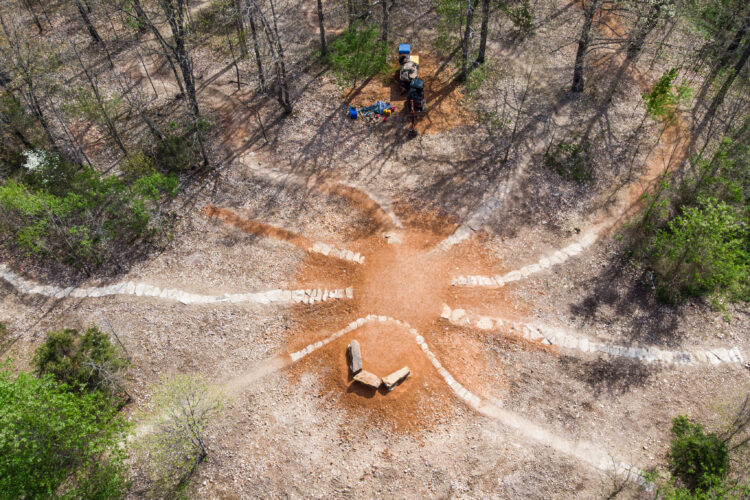
The Legacy Trails Grant program, a collaboration between IMBA and American Trails, will award $1.35 million to 27 projects in total, with close to $700,000 going toward 11 different mountain bike trail projects.
The Legacy Trails Grant program is in its second year now and is funded through the Bipartisan Infrastructure Law, which gives up to $1.5 million per year for five years for projects that restore, protect and maintain watersheds on public lands. The program is administered by American Trails and selects projects that provide a benefit to trails in National Forest lands.
According to IMBA, $2.7 million has been awarded to 65 projects nationwide in the first two years, which they believe will have a positive impact on watersheds, trail resiliency, and public access to the outdoors.
The 11 mountain bike projects awarded this year are expected to construct and improve 103 miles of trail and eliminate close to 100 miles of deferred trail maintenance, as well as convert about 17 miles of unsustainable road into sustainable trail.
Here are the 11 grant recipients for 2024.
Tonto National Forest, Arizona
Restore final 14 miles of 53-mile National Recreation Highline Trail and prevent erosion and improve watershed health, while increasing user safety. Partners include Wild Arizona, Rim Country Mountain Bike Association, and the National Forest Foundation.
Santa Fe National Forest, New Mexico
Phase 2 of the Arroyo Hondo project will expand the existing trail network by 25.6 miles and redesign and reroute 12 miles of existing closed roads and 7.1 miles of user-created trail and ensure their sustainability with watershed protection. The project will also convert eight miles of old logging road to adaptive MTB trails. Partners include the Santa Fe Fat Tire Society.
Sawtooth National Forest, Idaho
This project will remove three old bridges in beaver habitat and close trail in and reroute it out of a riparian zone. One bridge will be rebuilt in a sustainable design, reducing future maintenance costs associated with the other bridges and eliminate trail braiding through the wetland environment. Partners include the Wood River Trails Coalition.
Wasatch National Forest, Utah
This project will involve increasing the resiliency of tread surfaces in the forest, mitigating erosion events like heavy rain and flooding. This will be done with infrastructure installation and heavy maintenance. Partners include the Cottonwood Canyons Foundation, Salt Lake Ranger District, Salt Lake City PublicUtilities Watershed Division, Utah Division of Outdoor Recreation, and Salt Lake County.
Carson National Forest, New Mexico
This project will enhance sustainable recreation opportunities and raise awareness about the Rio Fernando de Taos by rerouting fall-line trails, closing user-created trails building a retaining wall in high traffic and areas that see frequent erosion. The measures should improve habitat for several bird and fish species. Partners include Enchanted Circle Trails Association, Rio Fernando de Taos Watershed Revitalization Collaborative, Local Youth Corps.
Monongahela National Forest, West Virginia
Select unsustainable roads will be converted to trails in this project since they are impassable and affect watershed health. The trail will be a “purpose-built mountain bike/pedestrian trail,” and will meet the needs of mountain bikers and hikers of all skills and fitness levels. The trail is expected to be 4.5 miles in length and will take two years to complete. Partners include Pocahontas Trails, West Virginia University, and NICA.
Shasta-Trinity National Forest, California
This project will address 21 miles of deferred trail maintenance and create more resilient and sustainable trails, as well as water quality for the coho salmon and the municipal water supply. The partners include the The Watershed Research and Training Center, Youth Conservation Crew, SMART Workforce Center, Ascend Wilderness Experience, Trinity Trail Alliance, and Siskiyou Outdoor Recreation Alliance.
Pike and San Isabel National Forests, Colorado
The Wildlands Restoration Volunteers and Colorado Youth Corps Crews are working with the South Park ranger District and other partners to construct a 4.5-mile connector trail between a smaller trail system in nearby National Forest and the expansive Summity County System across Boreas Pass and the White River National Forest.The project will replace 2.5 miles of unsustainable road and restore a 1.5 mile trail along Crooked Creek.
Idaho Panhandle National Forest, Idaho
This project will reroute a 1.1-mile user-created trail where it follows disused skid road corridors at grades of above 15%. The work will resolve safety and erosion issues, which result in sedimentation of the City’s drinking water. A new trail will be hand built to modern standards to allow for drainage. User-created bridges and wooden jumps will be removed and the bridges will be rebuilt to USFS standards. Partners include the Pend Oreille Pedalers and USFS-Sandpoint.
Pisgah National Forest, North Carolina
Trail builders and contractors will rehabilitate a 0.325-mile legacy trail to re-establish it as a sustainable trail. The project will also convert some roads to trail, remove culverts and construct a crib wall where the trail is eroding into a tributary of Cove Creek. Drainage improvements, rock armoring and erosion control will also benefit the watershed and improve connectivity within the Pisgah Ranger District trail system. Partners include The Pisgah Conservancy.
White River National Forest, Colorado
This project will replace on old bridge on the West Ridge Trail in Summit County. The new bridge will be 20 feet long and a turnpike will be installed to elevate the trail tread above a wet, marshy zone. Partners include the Friends of the Dillon Ranger District.





















1 Comments
Feb 27, 2024